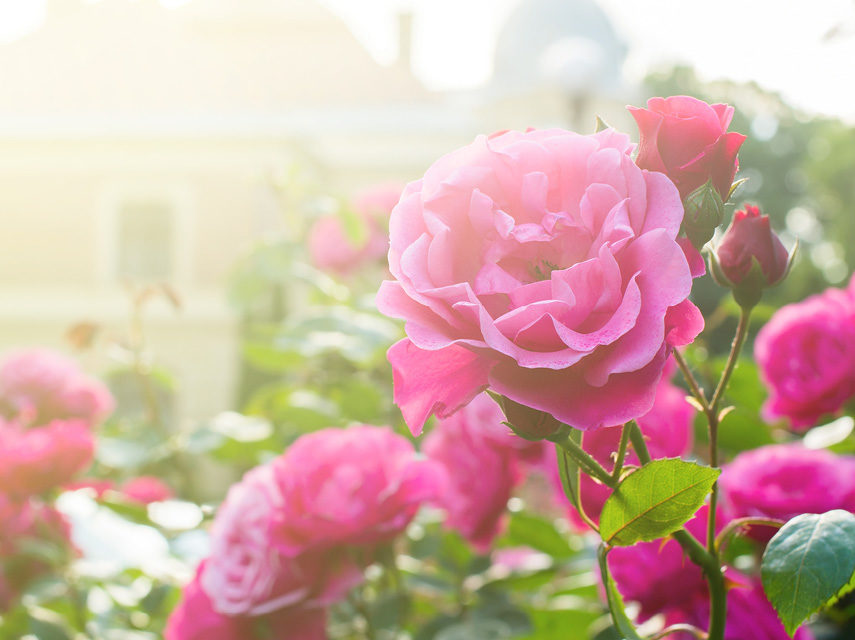Brighten, tidy and boost your ornamental garden.
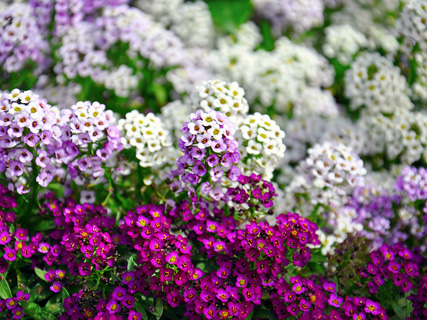
- Tidy up the garden for the summer holidays: cut off dead flowers, trim straggling branches on shrubs and remove old annuals as they finish their flowering cycles.
- Fill the gaps with seedlings to provide splashes of colour: white and purple alyssum make good groundcovers in sunny spots, while petunias, salvias, vincas and zinnias are hardy sun lovers that don’t need too much water.
- Brighten up shady areas with masses of impatiens, begonias and coleus.
- Tough gazanias make pretty pavement plantings with mauve sea lavender or statice everlastings’.
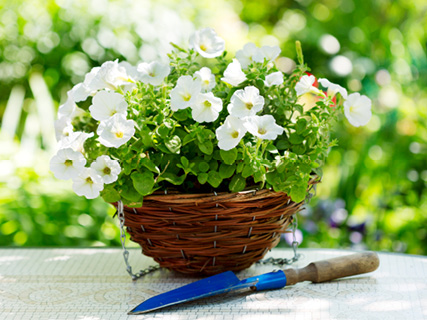
- Boost plants with a sprinkling of volcanic rock dust around the roots or Talborne Organics’ Vita-Grow granules and water in well; or use an organic liquid feed such as Kelpak.
- Mow kikuyu lawns twice a week, and fine varieties such as kweekgras and buffalo weekly – a good reason to plant indigenous!
- Encourage plant roots to grow deeper by watering well less often. If you water a little frequently, this promotes shallow root growth and plants dry out quickly on hot days, ending up weak and wilted.
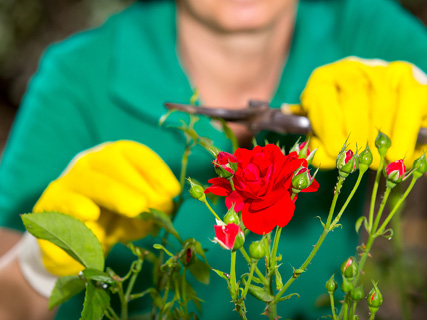
- Coarse compost is the best mulch – it feeds your soil as it breaks down.
- Roses need a lot of attention in our climate, so it’s best to choose varieties that need less fussing over.
- White Icebergs and pink Simplicity look good together and are low-maintenance floribundas.
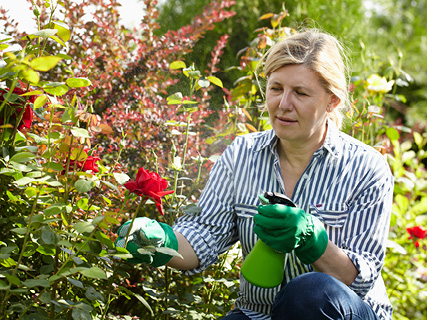
- If you want roses to pick for the vase, try the Eco-Chic range of hybrid tea roses bred to be more disease-resistant. Water well twice a week early in the morning, so leaves are dry by nightfall. Spray regularly to prevent black spot and downy mildew. Try this home remedy: one tablespoon of bicarbonate of soda and two tablespoons of Oleum dissolved in five litres of water, and spray weekly.
- Deal with aphids and caterpillars with an ecofriendly weak vinegar spray you can make in your kitchen: in a spray bottle, mix 50ml ordinary vinegar with one litre of water and a dash of liquid soap. Spray on tender buds where aphids gather and on leaves hiding caterpillars.
- At the end of February, give roses a light summer pruning: remove dead and diseased wood, and cut back to the second bud below the flower head. Feed them with liquid manure or Talborne Organics Vita Fruit and Flower and your roses will reward you with an autumn flush of blooms.

